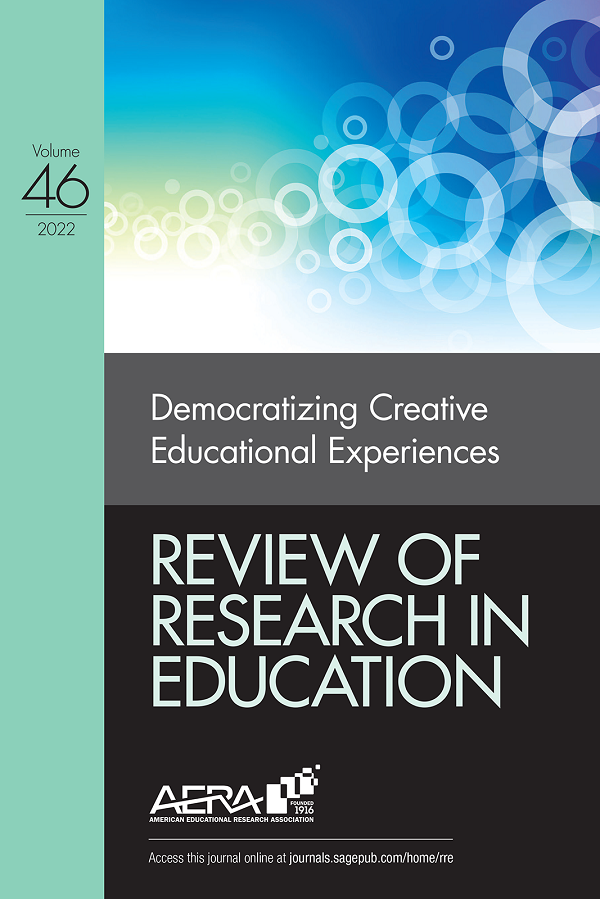通过增强形象和代理使创造力民主化:回顾和元分析
IF 2.4
1区 教育学
Q1 EDUCATION & EDUCATIONAL RESEARCH
引用次数: 2
摘要
创造力是各种教育话语的一个重要话题,但它在学校系统内得到的支持是不够的。这一章着重于使创造力在学校环境中更加民主化、突出和可及的四种特殊方式。我们从探索平等主义理论方法对创造力的教育益处开始。然后,我们假定民主化需要同等地关注创造潜力的认知方面和自我认知和自我调节的动机领域。第三,分析认知特征,我们特别关注创造性意象:创造性潜力的一个未被充分研究但至关重要的方面。通过荟萃分析来自介入研究的现有证据,我们表明有多种有效的方法来增强创造性意象,因此,从某种意义上说,支持创造性潜力也可以通过超越创造力培训来实现民主化。第四,也是最后,我们讨论了将所谓的明智干预用于创造力教育心理学的可能性。我们回顾了现有的证据如何增强学生的创造性信心和创造性的感知价值,以及如何使他们的创造性自我调节更有效。本文章由计算机程序翻译,如有差异,请以英文原文为准。
Democratizing Creativity by Enhancing Imagery and Agency: A Review and Meta-Analysis
Creativity is a vital topic of various educational discourses, yet the support it receives within the school system is insufficient. This chapter focuses on four particular ways of making creativity more democratized, salient, and accessible in school settings. We start by exploring the educational benefits of egalitarian theoretical approaches to creativity. Then, we posit that democratization requires an equal focus on the cognitive aspects of creative potential and the motivational sphere of self-perception and self-regulation. Third, analyzing cognitive characteristics, we pay special attention to creative imagery: an understudied yet critical aspect of creative potential. By meta-analyzing available evidence from interventional studies, we show that there are multiple effective approaches to enhancing creative imagery, so—in a sense—supporting creative potential might be democratized as well by going beyond creativity training. Fourth, and finally, we discuss the possibilities of adapting so-called wise interventions for the educational psychology of creativity. We review available evidence of how to strengthen creative confidence and the perceived value of creativity among students, and how to make their creative self-regulation more effective.
求助全文
通过发布文献求助,成功后即可免费获取论文全文。
去求助
来源期刊

Review of Research in Education
EDUCATION & EDUCATIONAL RESEARCH-
CiteScore
15.70
自引率
0.00%
发文量
14
期刊介绍:
Review of Research in Education (RRE), published annually since 1973 (approximately 416 pp./volume year), provides an overview and descriptive analysis of selected topics of relevant research literature through critical and synthesizing essays. Articles are usually solicited for specific RRE issues. There may also be calls for papers. RRE promotes discussion and controversy about research problems in addition to pulling together and summarizing the work in a field.
 求助内容:
求助内容: 应助结果提醒方式:
应助结果提醒方式:


